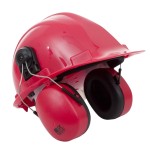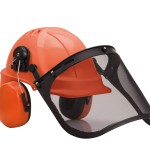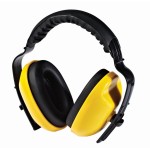
This week is tinnitus awareness week, and we thought we should share some information with you. Did you know that Tinnitus is one of the most common health problems in the UK? It is suggested that around 10% of our general population suffers from this at any given time. This can be quite a distressing, and contrary to common belief it can occur across all age groups. Whether that be from power tools, environmental sounds such as machinery, or even going to see your favourite metal band!
So what is Tinnitus?
A misconception of Tinnitus it is a disease or illness – this isn’t true at all – it can more accurately described as one type of work related Noise Induced Hearing Loss (NIHL). It is a an auditory symptom which generates a noise in the ears, or what what feels like inside the head itself. This noise can vary from being a low or high pitched sound – a buzzing, or droning sensation, or a combination of sounds which are perceived with no external source. Others have described it as a whistling, or humming – it often varies quite a lot between people. The cause of this hearing issue still hasn’t been fully understood, but it is thought that it is associated with hearing loss.
As the ears are exposed to loud sounds, the tiny hairs inside the ears can get damaged, which will make Tinnitus more noticeable to the person suffering from it. Stress and anxiety is also often touted as a possible cause, but this hasn’t been totally proven as of yet, so it isn’t fully clear if it contributes to the onset of Tinnitus, however it could be more noticeable if you are under stress or suffer from anxiety. Ear infections have also been noted to contribute to the symptoms.
Defending against Tinnitus
So what can you do to cure this? Currently there isn’t a definitive cure for Tinnitus, however the BTA (British Tinnitus Association) are striving to find a long term solution for this. Thankfully in some cases which have been studied, over time the noises will get better and in some cases will disappear entirely. This is due to a process called habituation, where the brain stops registering or taking interest in the signal which causes the sound. The time for this to happen is totally unique to each individual case.
In order to reduce the chances of developing tinnitus in the workplace, it is essential to follow your companies PPE guidelines accordingly. These regulations are to safeguard you and your health, and that includes your ears if you work in an environment where loud noises are commonplace. Essentially when working in or around loud noises, you will need ear protection. Here are some examples of products which can help reduce noise levels:

Clip-on Ear Defenders
£4.64 ex VAT

Foam Ear Plugs (200)
£17.52 ex VAT

Forestry Kit
£19.12 ex VAT

M1 Premium Earfmuff
£23.22 ex VAT

Wave Band (8pk)
£32.42 ex VAT

Detect Earplugs (50)
£69.52 ex VAT

Pura-Fit Earplugs (50)
£7.04 ex VAT

25dB Ear Defenders
£4.80 ex VAT
Resources:
Source: www.helpinhearing.co.uk
Source Document here.
British Tinnitus Association website
to view our comprehensive range of EN352 Ear Protection please click our logo below

